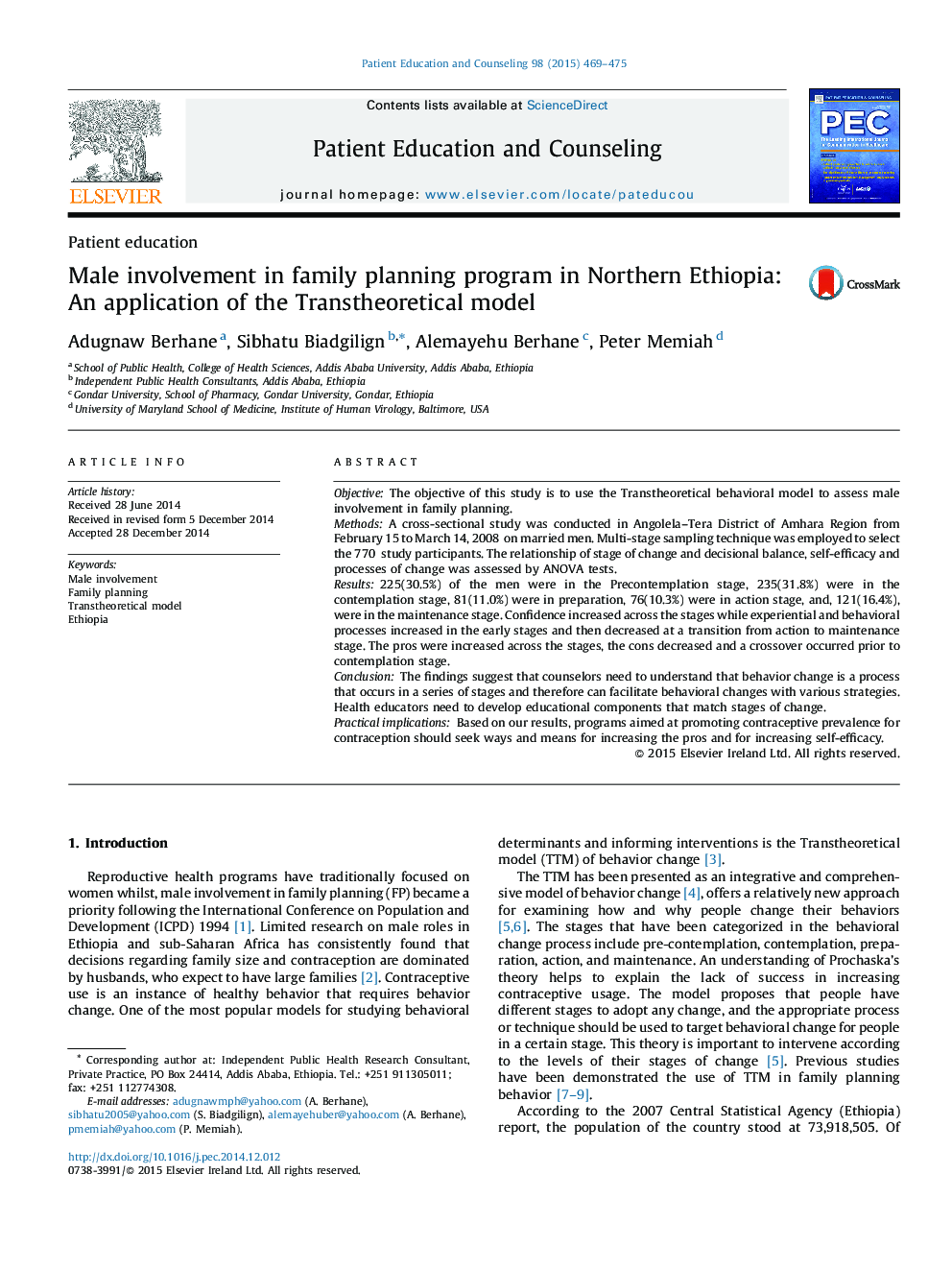| Article ID | Journal | Published Year | Pages | File Type |
|---|---|---|---|---|
| 3813710 | Patient Education and Counseling | 2015 | 7 Pages |
•Significantly higher scores for precontemplation stage were observed.•Differences were found in different stages of self-efficacy for contraception use.•The majority of married men were in the precontemplation and contemplation stage.
ObjectiveThe objective of this study is to use the Transtheoretical behavioral model to assess male involvement in family planning.MethodsA cross-sectional study was conducted in Angolela–Tera District of Amhara Region from February 15 to March 14, 2008 on married men. Multi-stage sampling technique was employed to select the 770 study participants. The relationship of stage of change and decisional balance, self-efficacy and processes of change was assessed by ANOVA tests.Results225(30.5%) of the men were in the Precontemplation stage, 235(31.8%) were in the contemplation stage, 81(11.0%) were in preparation, 76(10.3%) were in action stage, and, 121(16.4%), were in the maintenance stage. Confidence increased across the stages while experiential and behavioral processes increased in the early stages and then decreased at a transition from action to maintenance stage. The pros were increased across the stages, the cons decreased and a crossover occurred prior to contemplation stage.ConclusionThe findings suggest that counselors need to understand that behavior change is a process that occurs in a series of stages and therefore can facilitate behavioral changes with various strategies. Health educators need to develop educational components that match stages of change.Practical implicationsBased on our results, programs aimed at promoting contraceptive prevalence for contraception should seek ways and means for increasing the pros and for increasing self-efficacy.
